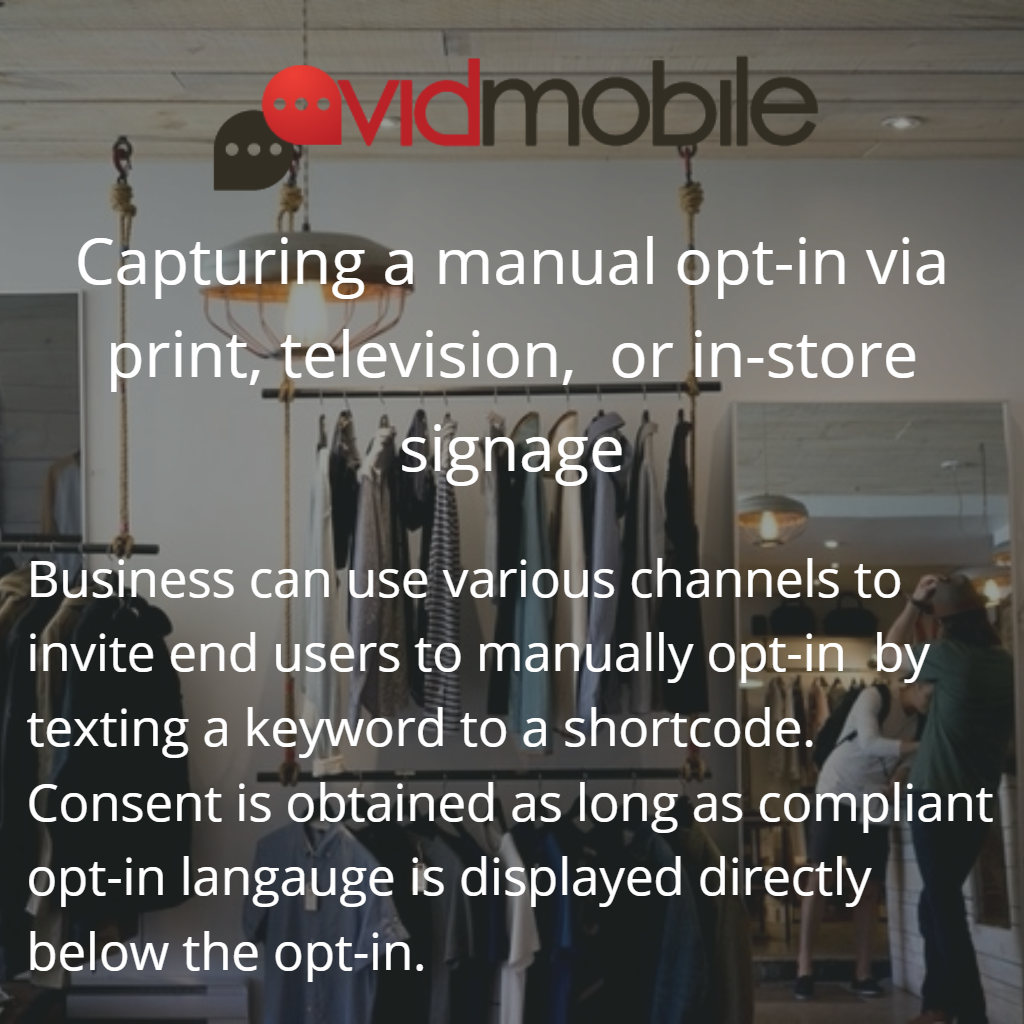AvidMobile SMS Compliance: Part One

SMS Compliance: Why it matters
You’ve invested in SMS. Maximize your ROI.
SMS is a versatile and powerful marketing tool. When brands use this tool correctly enables them to directly communicate with their target audience via their mobile phone. Individuals experiencing the highest levels of success with SMS have educated themselves and understand SMS Compliance and best practices.
By building a database of compliant SMS opt-ins, you are laying the foundation for future SMS communications. When your audience opts-in, they are telling you that they have an interest your product, services, and offerings. Of course these customers have made it clear that they want communications delivered to them via SMS. If your audience feels that they were mislead about SMS communication because of poor opt-in language, they are likely to opt out. Fewer mobile numbers means a smaller reach, less opportunity to re-market, and a decrease in extra transactions.
Consumers want to be in control of SMS communications. Every individual has placed value on their personal information and when an offer meets or exceeds this perceived value a consumer engage with the offer. Compliant opt-in language protects you and your audience. Failure to incorporate SMS Compliance could result in the following:
- With no standards, set brands should expect a lack of opt-ins and an increase in opt-outs
- The risk of the consumer taking legal action against your business that could result in unnecessary fines
- Receiving a violation from the CTIA after they have conducted a random audit on your website and having to spend the time and money to correct it
The history behind SMS Compliance and best practices.
On October 16, 2013, new laws under the Telephone Consumer Protection Act (TCPA) went into effect. The TCPA applies to both voice and short message service (SMS) text messages when the transmission is for marketing purposes.
Under the TCPA rules, an advertiser must have unambiguous written consent before sending a text message to the consumer. The consumer consent must include a clear and conspicuous disclosure that the consumer will receive future contact via text message. The advertiser bears the burden of proof to demonstrate that a clear and conspicuous disclosure was provided. The statute of limitations is 4 years and opt-in proof should be kept per TCPA.
What is Prior Written Consent?
Prior express written consent is obtained through a signed written agreement, digitally signed agreement, or SMS opt-in with the correct terms & conditions that clearly and conspicuously discloses to the consumer that:
- By signing or acknowledging the agreement, the end user authorizes the seller to deliver marketing text messages to the designated phone number
- The consumer does not have to consent as a condition of purchasing any property, goods, or services
- Signatures must comply with state or federal law including email, website forms, or by sending a text message to opt-in
Prior to October 2013, businesses were able to send a marketing text message to a consumer if it had a previous established business relationship with the customer. Under the TCPA, established business relationships no longer relieve advertisers of the prior unambiguous written consent requirement. Advertisers need to obtain such written consent even if they previously had a business relationship with the consumer.




